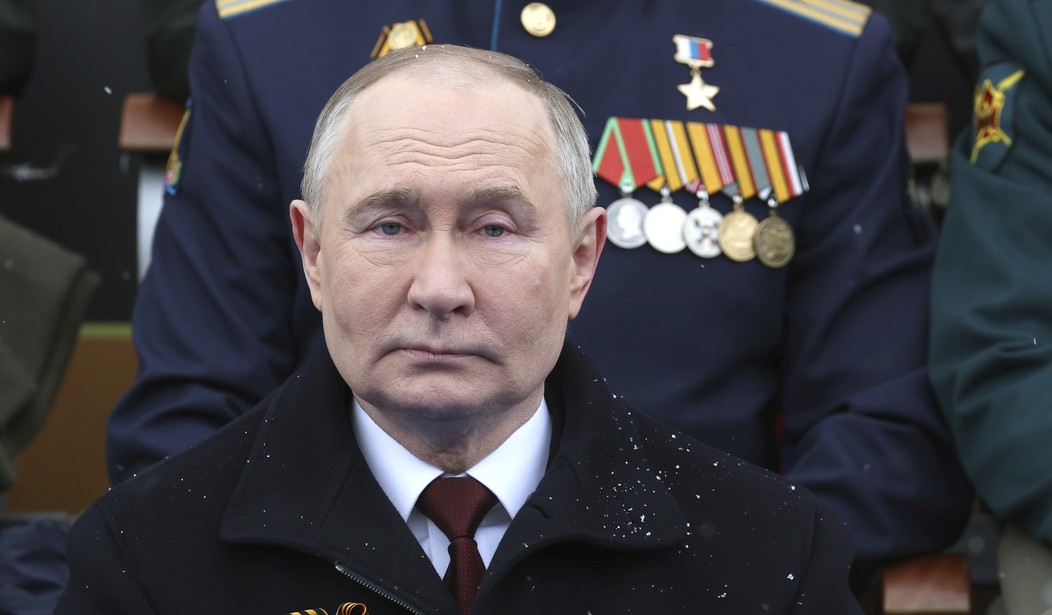It's been almost two weeks since the Ukrainian army crossed a lightly defended section of its border with Russia near Kursk. What began as a minor incursion involving 1,000 troops and elements of two armored brigades has become the biggest advance against Russian forces for Ukraine in nearly two years.
Can you imagine Canadian troops invading America by crossing the border in Montana? How long would it be before U.S. troops showed up to escort the Canadians back across the border?
It wouldn't be two weeks.
The amazing fact is that Russia simply doesn't have the reserves to send to the Kursk region and repel the Ukrainian advance. The entire Russian army is occupied trying to conquer Ukraine or otherwise engaged in securing other sectors of the border.
Moscow "reportedly is drafting conscripts to repel some of Ukraine’s most battle-hardened units," according to the Associated Press. If that's truly the case, it will be weeks before the new levies reach the front.
Meanwhile, as the days pass and the Ukrainian military continues to advance, Russian elites are beginning to question Putin's leadership. “The calculation that’s going on in their heads 24/7 is whether the status quo is to their advantage or not,” said Ekaterina Schulmann, a nonresident scholar at the Carnegie Russia Eurasia Center in Berlin.
Schulmann believes the question the elites are asking “is whether the old man is still an asset or already a liability.”
Russia’s elites could be described as being in a state of “unhappy compliance,” said Nigel Gould-Davies, senior fellow at the International Institute for Strategic Studies in London. They are discontented with the status quo, he said, but fearful about who would win if there were to be a leadership struggle.
They could be hoping, the analysts said, that Putin’s reaction to the events in Kursk fits a pattern in which he is initially slow to respond to a crisis before eventually managing to prevail.
During Putin's first term as president, a nuclear submarine, ironically named "kursk," went down in the Barents Sea, killing all 188 sailors on board. The vacationing Putin waited five days before asking the West to help. He was heavily criticized for that.
Putin was also sluggish in responding to the challenge to his authority by Wagner chief Yevgeny Prigozhin. After the mutiny was suppressed, Putin allowed Prigozhin to remain free, perhaps reluctant to get rid of his old friend. Prigozhin died in the crash of his private plane a few weeks later.
Putin’s hold on power “is unlikely to be weakened as a result of this humiliation,” wrote Eugene Rumer, senior fellow and the director of the Carnegie Russia and Eurasia Program, in a commentary. “The entire Russian political and military establishment is complicit in his war and responsible for this disaster.”
Exclusively for our VIPs: Biden Approves New Top Secret Nuclear Strategy Refocusing on China Threat
Nigel Gould-Davies, senior fellow at the International Institute for Strategic Studies in London, says Russia is deploying draftees to the Kursk front despite them not receiving enough training.
Analysts say reserves also are being called up, so that Russia can avoid pulling troops from Ukraine’s Donbas region, where Moscow’s forces are making slow progress.
The manpower shortage has seen authorities trying to entice Russians to serve by offering large salaries, drafting convicted criminals from prisons and recruiting foreigners inside the country.
As Ukraine presses its offensive, it could become difficult for the Kremlin to ignore the many consequences of the war. A key question, Gould-Davies said, is what happens if Russia’s elites conclude that the conflict is “unwinnable or if ... it will never end while Putin is in power.”
Currently, Putin's hold on power is firm, and any challenges coming from his inner circle, the military, the bureaucracy, or top business people would be futile. But a few more weeks of defeats and setbacks might change the minds of some elites and get them thinking about an exit strategy for themselves and Putin.










Join the conversation as a VIP Member